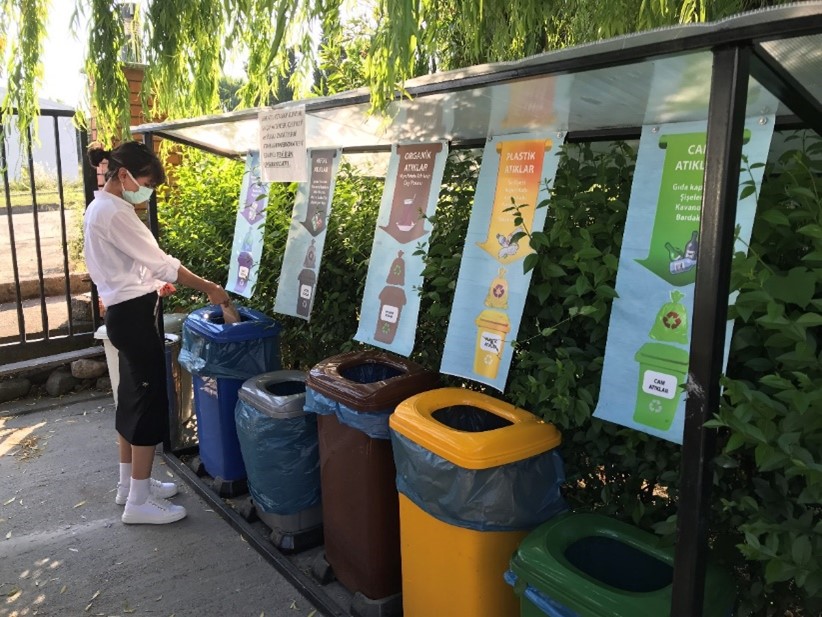Zero Waste is an approach to waste prevention with aims that include promoting the more efficient use of resources, reducing the amount of waste generated, and the establishment of effective collection and recycling systems.
As the world population increases, so too does the consumption of raw materials and energy per person. As a result, our already limited natural resources are rapidly depleting, and we are experiencing the effects of environmental pollution. The sustainable and efficient management of resources is vital to the survival of the planet and our future generations.
Compared to the year 1900
- Energy consumption per person has tripled
- Raw material usage has doubled
- The world population has increased fivefold

POPULATION
INDUSTRIALISATION
URBANISATION
CONSUMPTION
____________________
RESOURCES
Recycling
The reuse of waste is only possible by means of recycling; the process of converting reusable waste into secondary raw materials through physical or chemical treatment. The purpose of recycling is to prevent the excessive consumption of resources, to ensure that waste is sorted and separated at source, and to minimise the amount of unrecyclable waste.
The Benefits of Recycling
- It preserves natural resources
- It saves energy
- It reduces the amount of solid waste that needs to be disposed of
- It contributes to the economy
- It ensures a cleaner environment for future generations
- It reduces greenhouse gas emissions
For instance
The recycling of just one ton of waste paper
- Saves 17 trees
- Prevents up to 12,400m³of greenhouse gases emissions
- Provides a saving approximately 2.4m³ of waste storage
The recycling of metals and plastics can yield energy savings of up to 95% compared to the processing of raw materials.
Waste glass for example, goes back into glass products, in the same that waste metals go back into metal products, and recycled plastics can be converted for use in a vast variety of applications, such as insulation, pallets, soft furnishings, clothing, and toys.
For a cleaner and more habitable world for our future generations

Waste isn’t garbage, it’s the future!
Eagerly adopting this notion, Gökerplast has implemented Zero Waste throughout its entire site. All our staff have received Zero Waste training which, through enabling them to take a more active role in waste prevention, has enhanced their sense of environmental awareness.
Zero Waste practices in effect at Gökerplast
- Posters promoting awareness are displayed throughout factory

“We aren’t garbage!”
“There is no other world”
The time taken for materials to degrade
- Waste sorting bins have been placed in key locations throughout the workplace


- Supervisors and staff contribute greatly to Zero Waste by working in the field to separate waste and instill environmental awareness


- All paper, plastic, glass and metal waste is collected in separate bins
- All swarf from metalworking operations is collected for recycling
- Waste oils are stored in the waste oil collection area. They are later shipped for recycling for other purposes
- Any leftover food or kitchen waste is collected for the street dogs and other dogs that have become members of the Gökerplast family
- Through our ERP system (Enterprise Resource Planning) customers can now select either ‘WITH BAG’ or ‘WITHOUT BAG’ when ordering. We actively encourage our customers to use less packaging by informing them of the environmental benefits. Since providing this option, the amount of bags we use in packaging has decreased by 450kg per month, and when customers demand bagged goods we serve them with 100% recycled PE (polyethylene) bags.

On average, we now use around 1600kg PE bags per month for the packing our products, and buy using only recycled bags, we are making substantial savings.

Don’t forget to visit our other blog posts and You Tube page.

